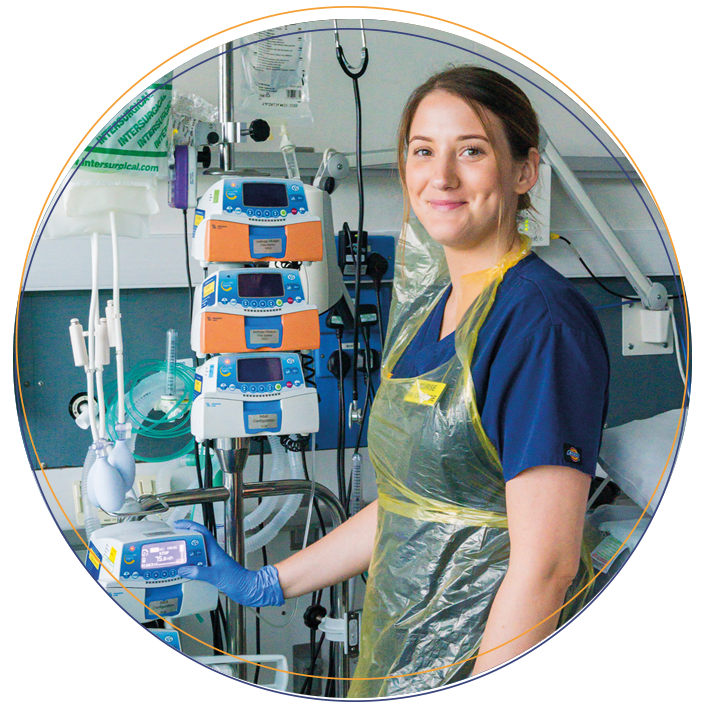17 February 2021
Stephen’s coronavirus journey through Intensive Care
Stephen Williams remembers next to nothing of his time in intensive care at University Hospital Southampton. But together with his sister Jan, they tell the story a survival after contracting Covid-19.
Sharing a personal message for the staff in Intensive Care:
“Although we are not able to say very much to you at the time, we do very much appreciate you and all of your hard work.
It is obviously a very intense situation which you have to deal with, all of the time.
I hear about people having to work really long shifts and not getting much sleep and not being able to see their families as much, so thank you very much everyone.”
“My only real symptom of coronavirus was a fever and high temperature, so I just stayed at home.
After about 12 days I became very weak and struggled to do anything. I called 111, and they sent an ambulance to treat me with saline and oxygen.
I did feel a whole lot better, and for a few days things weren’t too bad. By the following weekend however, my oxygen level had dropped significantly, and I was rushed to University Hospital Southampton.
From then on, I went downhill fast.
My sister got a phone call about 11.00pm that night saying that I had been taken to Intensive Care, and had already been placed on a ventilator.
I was in Intensive Care from 5 April until 7 May due to coronavirus, although I actually remember next to nothing of my time in Intensive Care.
My sister, Jan, was really good at keeping notes everyday of what the nurses were telling her, so I’ve been able to read some of that to fill in the blanks.”
Jan explains: “We are all we’ve got, we have no other close family. At times I didn’t think Stephen was going to make it, and it is down to everything those staff in Intensive Care do and provide, that he is here today. It is just amazing.
I think the hardest part, is that you can’t actually visit. It was so frustrating, but completely necessary.
I received calls from the Liaison Team everyday with updates, and they were brilliant at keeping me informed. And knowing the care he had, I knew he in the best possible hands.”
Stephen continues: “After Intensive Care, I went to the High Dependency Ward but for the first week I was not very responsive. I couldn’t really do much.
I didn’t have the energy to even attempt anything. I can’t describe it.
The tiredness was so intense that I would need to lie down often. It was like nothing I had ever experienced before.
I had a lot of physiotherapy, and fortunately I have recovered really well. I was moved to Royal South Hants Hospital for two and a half weeks for rehabilitation.
They were fantastic at getting me moving, and feeding me to get the weight back on. I had kitchen tests and stair tests, and I wasn’t allowed to go home until I was able to look after myself, even though my sister came to stay with me for a while.
With physiotherapy, I went from only being able to walk a few steps to needing a stick to help me.
These are things people don’t think about as being related to coronavirus. The after effects.
Six months on, I’ve still got some issues but they are slowly fading. The fatigue is starting to go but I do still get very tired.
I can now also move and walk around. I think most people probably wouldn’t know there anything wrong with me.”
Let’s give our amazing NHS heroes room to do what they do best.
Our General Intensive Care Unit treats around 2,500 every year. All of them have severe, life-threatening conditions ranging from serious infections to injuries from major accidents. And it is where many patients with coronavirus are treated.
A gift to our appeal will help us to kit out the new state-of-the-art unit which is currently being built. Help us to give our sickest patients the world-class care they deserve.

